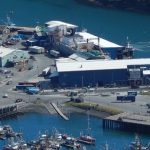Falmouth and Camborne MP Julia Goldsworthy led a debate in Parliament over the declining water quality on the Fal River, which concerns mussel farmers as they fear it is threatening their business. It is informed that the water quality on the Fal is measured in different ways by both the Environment Agency and the Port Health Authority. The report of the Environment Agency’s show that standards are improving, while the monitoring undertaken by the Port Health Authority for the Food Standards Agency has resulted in the downgrading of the quality of the mussels farmed on the river.
It is fact that the declining water quality increases the burden on mussel-growers in the Fal. It is said that at the beginning of the farms in 2001, the water quality was a good ‘B’ classification all year round, but this has steadily worsened, with the quality now ‘C’ during the winter. And the farmers are forced to carry out their farming under this process. They said that the viability of their businesses would be in serious doubt if they were required to go through this process all year round.
According to the record the industry produces 400 tonnes of mussels a year which sell for £4 million, and supports, directly and indirectly, 100 jobs. Goldsworthy told that as the results of the Environment Agency monitoring say one thing and the Food Standards Agency says another, there is a need for joined-up government on this issue. Some effective action can be taken to prevent the mussel farming sites from being downgraded further, and to safeguard important jobs locally.
She also said that there should be clear probe followed by joint action to resolve the problem. She also said that this will require clear guidance and regulation from government, but also co-operation at a local level.








